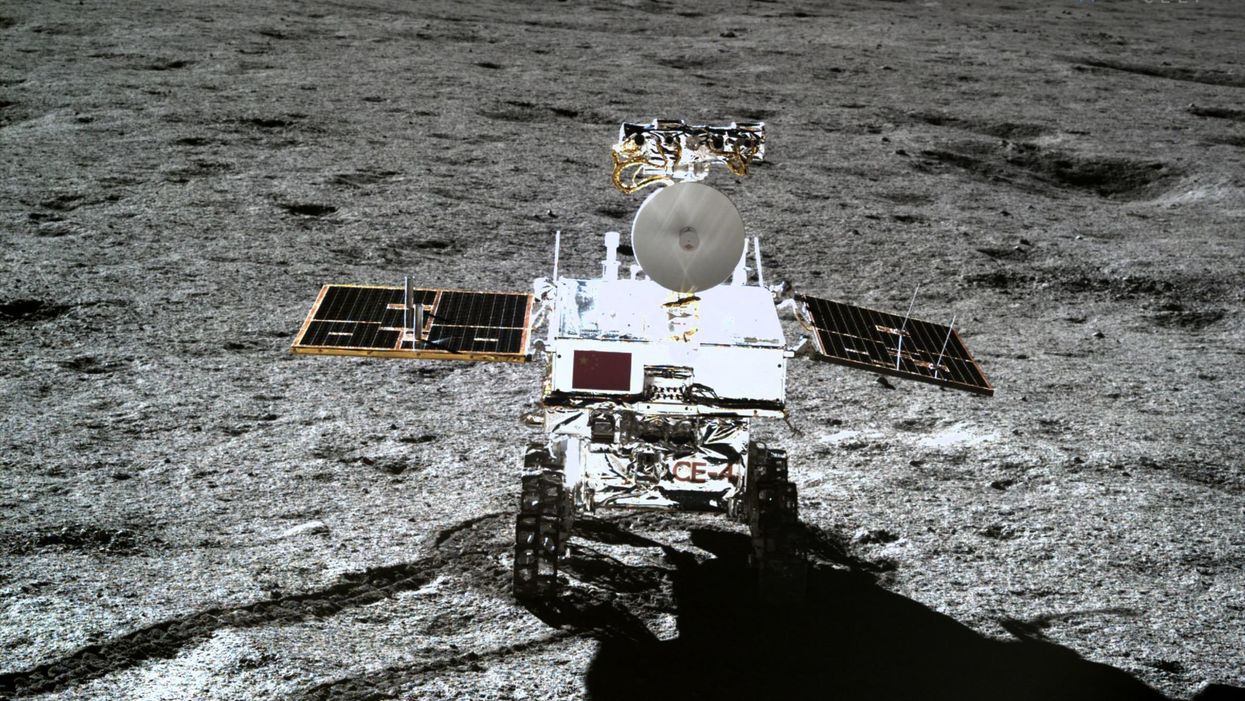
AFP/Getty Images

The cotton seeds were brought aboard a lunar rover to the far side of the moon
China has made space exploration history by growing the first ever plant on the moon.
Late on Jan. 3, China's newest lunar rover — nicknamed the Jade Rabbit — rolled off its lunar lander and onto the far side of the moon. The six-wheeled vehicle is carrying a mini biosphere with a live potato, rapeseed and arabidopsis plants, fruit fly eggs, cotton, and some yeast.
In the biosphere, the plants are shielded from harmful radiation, and the temperature is maintained artificially, since the moon lacks a sufficient atmosphere to block radiation from space or to regulate heat.
Once the probe landed, the Chinese space agency sent it a signal to begin watering the seeds.
On Tuesday, China announced that the cotton seeds had started to grow. So far the other seeds and the eggs have not shown signs of life, but that could change within a matter of days.
Professor Liu Hanlong, who is in charge of the experiment, told the South China Morning Post that he hoped in the future potatoes could help provide a source of food for astronauts. He said that the cotton and rapeseed were chosen because they could provide the astronauts with the raw material needed to produce clothing and oil.
He said that the plants inside were "producers, consumers and decomposers," providing their own self-sustaining ecosystem. The ability to grow food and other resources in space could help to decrease the amount of cargo astronauts need to bring with them.
"We have given consideration to future survival in space. Learning about these plants' growth in a low-gravity environment would allow us to lay the foundation for our future establishment of space base," Liu told the paper.
China already has plans for four additional unmanned missions to the moon. It also plans to send an unmanned mission to Mars in 2020.
While China has insisted that the probe prevents any organisms on its lunar lander from contaminating the surface, earlier space explorers were not so cautious. The BBC notes that there are already "nearly 100 bags of human waste on the Moon left behind by the Apollo astronauts."